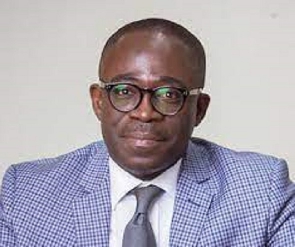The Deputy Minister for Energy, William Owuraku Aidoo, has said that Ghana’s Ghana Scaling-up Renewable Energy Program (SREP) will unlock additional financing opportunities to achieve accelerated and sustainable development of the country’s renewable energy sector and contribute to the goals of the country’s energy transition efforts.
The deputy minister made this revelation when he represented energy minister, Dr. Matthew Opoku Prempeh, to launch the SREP and also inaugurated the SREP Steering Committee (SREP SC) and the Net-Metering Solar PV project Governance Council (SREP NMPV GC), at the Accra City Hotel.
The Ghana SREP is a multi-donor initiative of the Climate Investment Fund (CIF), the African Development Bank (AfDB), the Swiss Government acting through its donor agency SECO and the Government of Ghana aimed at mobilizing financial resources to catalyze investment in renewable energy solutions, increase access to clean and reliable electricity services and support Ghana’s energy transition efforts.
William Aidoo, who is also the MP for Afigya Kwabre South, added that the Ghana SREP will thus contribute significantly to the electrification of the last-mile rural communities and the attainment of the universal access to electricity target by 2025, as well as increase Ghana’s energy security through the increased renewable energy contribution in the generation mix of 10% by 2030.
He stated that in May 25th 2022, Ghana signed two separate agreements with AfDB and SECO which consummated the mobilization of a total of US$85.18m as follows;
1. Climate Investment Fund contribution amounting to US$28.49 Million, 2. African Development Bank contribution amounting to US$27.39 Million, 3. SECO contribution in parallel co-financing amounting to US$14.00m specifically to fund the NMPV Component, and 4. Government of Ghana Counterpart Funding amounting to US$16.00m.
The US$85.18m will fund two flagship project components: (1) Mini-grid & Standalone Solar Home Systems project and, (2) Net-metered Solar PV Project, as well as the associated project management costs
“The Mini-grid and Solar Home Systems project, will deliver 35 mini-grids, standalone solar PV systems for 750 SMEs, 400 schools, 200 health centres and 100 communities’ energy service systems in rural Lakeside and island communities in the Savanah, Northern, Bono East, and Oti Regions,” the deputy minister stated, adding that an estimated 84,255 Ghanaians living in remote rural communities will have access to clean and affordable renewable electricity.
The Net metering solar PV (NMPV) project, he said, will deliver 12,000 units of roof-mounted net-metered solar PV systems to reduce the public sector electricity debt, impact positively on the Energy Sector Recovery Program (ESRP) and, improve energy security for small and medium-sized enterprises (SMEs) and households in the urban areas.
The deputy minister expressed government’s deep appreciation for the support it has enjoyed and continues to enjoy from the donor community, particularly the AfDB and the Swiss Government through SECO, and gave the assurance that Government of Ghana will honour all her obligations under the project.
Business News of Wednesday, 21 December 2022
Source: www.ghanaweb.com

















